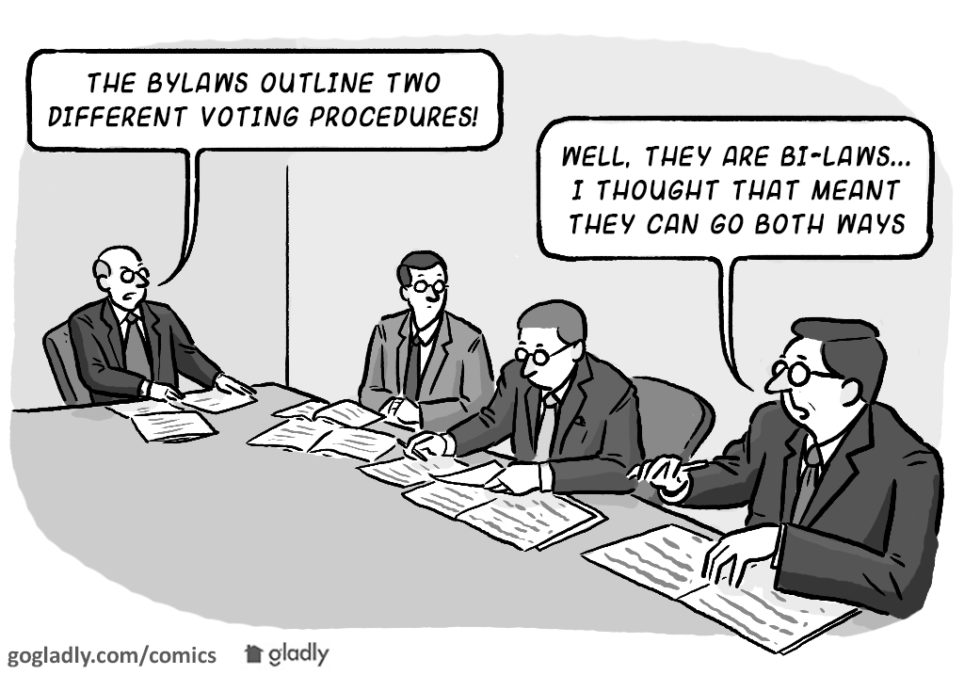As an HOA manager, you know one thing for sure. Getting things in writing (translation: iron-clad legalese) is essential. Since your HOA bylaws serve as your governing course of action — and your go-to procedure manual — it’s pretty important for them to be clearly understood and closely followed. Aye, but here’s the rub: homeowners (even board members) tend to get confused between bylaws and other governing documents. So let’s clarify the difference.
HOA Bylaws
Governed by an elected board, HOAs are typically set up as nonprofit corporations that manage planned, private communities. HOA bylaws govern how your association operates, and aren’t exactly designed to change with the tide. They might establish:
- How meetings may be called
- How those meetings must be run
- The duties and roles of specific board members
- Membership voting rights and proceedures
- How many people should be on the board and length of terms
- How board members are elected and replaced
- The HOA’s rights and responsibilities (rule enforcement, fee collection, budgets, etc)
CC&Rs
Filed with your local county, CC&Rs actually refer to the day-to-day rules of your neighborhood. So when Barbara and Howard Shlomotzky complain about the landscaping requirements or the placement of the Jones’ satellite dish, it’s the CC&Rs — not the bylaws — they’re taking issue with. Basically, CC&Rs govern what homeowners can and cannot do in regards to their homes. They are also legally binding; a fact many residents fail to understand or appreciate.
Many HOAs also adopt separate regulations and policies to complement the CC&Rs. Those rules and policies are binding as long as they don’t violate any laws or conflict with the CC&Rs. So yes, as an HOA, you do have the legal authority to enforce those rules. Sorry, Howard.
A Note About Clarity
If you put your HOA on a dinner plate, bylaws and CC&Rs would be the meat and potatoes, and clarity would be your fork and knife. Without clear communication, the rules won’t be of much use. Your governing documents provide the substance on which you operate, but without clarity, you’ll have a mess on your hands.
- Walking the “Fine Line”: Imposing Fines in Your HOA - July 31, 2019
- HOA Meetings That Don’t Stink - January 23, 2019
- Setting Up Your HOA Record Keeping System - November 28, 2018



 Help
Help